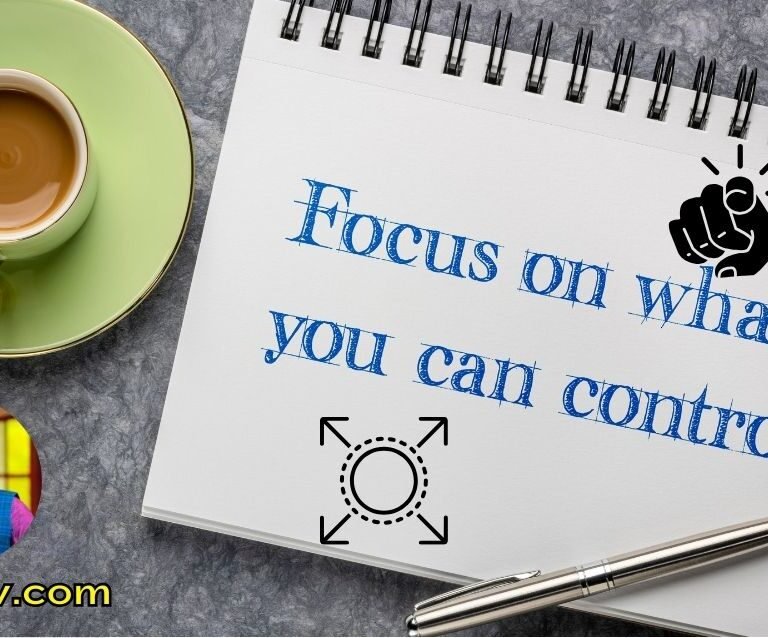Forgiveness, often hailed as a cornerstone of emotional well-being
Forgiveness, often hailed as a cornerstone of emotional well-being, is the act of freeing oneself from the grip of resentment and anger. It involves a conscious decision to let go of animosity towards individuals who have caused harm, thereby fostering a state of inner peace and personal growth. The concept of forgiveness is deeply ingrained in numerous cultures and religions, each offering unique perspectives on its significance and implementation.
In Christian doctrine, forgiveness is a divine mandate, encouraging followers to pardon those who trespass against them. The act of forgiveness is seen as an emulation of God’s mercy, leading to spiritual healing and strengthening communal bonds. Similarly, in Islam, forgiveness is a virtue that reflects Allah’s boundless compassion, urging practitioners to show clemency and rebuild fractured relationships. Buddhism, on the other hand, views forgiveness as a pathway to achieving detachment from negative emotions, fostering a serene state of mind essential for spiritual enlightenment. Even in secular societies, the value of forgiveness is widely acknowledged, emphasizing its role in mental health and societal harmony.
Forgiving others is often challenging, yet it is essential for shedding the burden of bitterness that can impede emotional well-being. Holding onto grudges can lead to chronic stress, anxiety, and a myriad of physical health issues. By choosing to forgive, individuals can break free from these adverse effects, creating a healthier and more harmonious life. Furthermore, the act of self-forgiveness is equally important. It involves acknowledging one’s own mistakes and striving to move beyond them, fostering a mindset geared towards learning and growth rather than self-reproach.
Thus, the journey of forgiveness—both towards others and oneself—is crucial for attaining inner peace and personal development. It is a transformative process that enables individuals to lead more fulfilling lives, underscoring the profound power inherent in the simple act of forgiving.
The Emotional and Psychological Benefits
Forgiveness is not merely a moral act; it profoundly impacts emotional and psychological well-being. Embracing forgiveness can unlock a range of positive mental health outcomes, significantly improving overall quality of life.
One critical emotional benefit of forgiveness is the reduction of anxiety. Holding onto anger and resentment can exacerbate feelings of anxiety, leading to a persistent state of stress. By releasing these negative emotions, individuals can experience a calmer, more balanced state of mind. A study published in the “Journal of Anxiety Disorders” has shown that individuals who practice forgiveness report lower levels of anxiety and higher levels of emotional stability.
Stress reduction is another important psychological advantage tied to forgiveness. The act of forgiving provides a mental reprieve, allowing individuals to let go of the past and focus on the present. Chronic stress, which is often linked to unforgiveness, can have severe health consequences, including heart disease and a weakened immune system. Research from the “Journal of Behavioral Medicine” indicates that forgiveness leads to decreased physiological stress markers, suggesting a healthier, less strained mental and physical state.
Depression is another condition that forgiveness can help ameliorate. Intense feelings of betrayal and hurt can foster a depressive outlook, contributing to a cycle of negativity. Choosing to forgive can break this cycle, paving the way for emotional healing and a more optimistic perspective on life. According to a study found in the “Journal of Health Psychology,” individuals with higher levels of forgiveness reported significantly lower levels of depression, emphasizing the therapeutic value of letting go of grudges.
Expert opinion also supports the transformative power of forgiveness. Dr. Fred Luskin, director of the Stanford Forgiveness Projects, argues that forgiveness is a crucial method for relieving emotional pain and enhancing mental health. His research underscores that people who forgive are more likely to experience positive emotional states and maintain healthier relationships.
Thus, forgiveness offers a multifaceted approach to improving mental health, reducing anxiety, alleviating stress, and combating depression. It is a powerful tool for emotional and psychological well-being, backed by scientific studies and expert insights.
Forgiving Others
Forgiving others can be a challenging yet profoundly transformative endeavor. Oftentimes, individuals face numerous barriers to forgiveness, such as deep-seated grudges and feelings of betrayal. These barriers can create a heavy emotional burden, complicating one’s ability to move past the hurt. However, overcoming these obstacles is integral to the healing process and can lead to personal liberation.
One common barrier to forgiveness is the fear of vulnerability. Allowing oneself to forgive may involve confronting raw and painful emotions that have been buried under layers of resentment. Additionally, people often feel that forgiving someone who has wronged them means condoning the harmful behavior, which can further hinder the willingness to forgive. Recognizing that forgiveness does not equate to excusing the offending action is a vital step in dismantling this barrier.
Practical strategies can facilitate the journey towards forgiveness. One effective approach is to cultivate empathy by attempting to understand the offender’s perspective. This doesn’t mean justifying their actions but acknowledging their humanity and imperfections, which can help dilute the intensity of one’s own anger and resentment. Another strategy is mindfulness meditation, which can assist individuals in gaining emotional clarity and reducing stress, thus making it easier to embrace forgiveness.
Real-life examples can illustrate the transformative power of forgiving others. For instance, renowned peace activist Desmond Tutu famously forgave those who perpetuated apartheid in South Africa, emphasizing that true reconciliation can only be achieved through forgiveness. Similarly, Eva Kor, a Holocaust survivor, publicly forgave Nazi doctors, an act that significantly contributed to her own emotional healing and closure. These stories underscore that while the path to forgiveness may be arduous, the rewards of emotional freedom and inner peace are invaluable.
In navigating the complexities of forgiving others, one not only lifts a significant emotional weight but also opens up avenues for personal growth and healing. By embracing empathy and mindfulness, and drawing inspiration from those who have achieved personal liberation through forgiveness, individuals can experience the profound, transformative power of forgiving others.
Forgiving Yourself
Forgiving yourself is a pivotal aspect of emotional well-being and personal growth, yet it often proves more challenging than forgiving others. When faced with self-blame and guilt, individuals frequently engage in internal conflicts far more complex than any external quarrel. These inner struggles can create significant emotional burdens, impeding one’s ability to move forward and grow. The importance of self-forgiveness cannot be overstated, as it fundamentally differs from forgiving others by being an inward process aimed at remedying self-inflicted wounds.
The journey towards self-forgiveness begins with acknowledging and accepting one’s mistakes. An essential component here is the understanding that everyone errs; it is an intrinsic part of the human condition. Recognizing this allows individuals to move past the destructive cycle of self-criticism and blame. It is crucial to differentiate between taking responsibility for one’s actions and succumbing to incessant self-punishment. The latter often leads to feelings of unworthiness and prolonged emotional distress.
Practicing self-compassion is a vital step towards achieving self-forgiveness. This involves treating oneself with the same kindness and understanding one would offer a dear friend. Engaging in self-compassionate thoughts and behaviors can significantly alleviate the intensity of guilt and foster a nurturing internal environment. Mindfulness practices, such as meditation and reflective journaling, serve as practical tools, helping individuals stay present and detached from negative self-judgments.
Long-term benefits of making peace with oneself are profound. Self-forgiveness can lead to improved mental health, fostering resilience against stress and depression. It enhances one’s ability to maintain healthier relationships, as self-acceptance often translates to greater empathy and acceptance of others. Over time, self-forgiveness lays the groundwork for a more balanced and positive self-perception, enabling individuals to pursue personal and professional goals with renewed confidence and emotional clarity.
The Role of Empathy and Understanding
Empathy and understanding play a significant role in facilitating the process of forgiveness. Developing empathy necessitates the ability to identify with and understand another person’s situation, emotions, and motives. It is through empathy that one can mitigate feelings of resentment and foster a mindset open to forgiveness.
Putting oneself in another person’s shoes to understand their perspective is crucial. This cognitive empathy allows individuals to deeply consider the context of the offending party’s actions. By actively contemplating what might have driven another to act in a certain way, it becomes more feasible to navigate through the hurt and towards forgiveness.
Active listening is one effective technique to enhance empathy. It involves fully concentrating, understanding, responding, and then remembering what is being said. Unlike passive listening, active listening demands engagement and reflection. When practiced, it can reveal underlying issues and emotions that might otherwise remain hidden. Active listening facilitates a deeper connection and a more profound understanding of the other person’s viewpoint, which is essential for forgiveness.
Moreover, empathy exercises are valuable tools in cultivating a forgiving mindset. These exercises, which can include reflective journaling, role-playing scenarios, or immersive empathetic experiences, help individuals practice seeing the world from another’s vantage point. Such activities not only build empathy but also promote emotional intelligence and relational stability.
By developing empathy and understanding, individuals are better equipped to process their emotions constructively. This reduces the internal conflict that often accompanies harboring grievances. When empathy and understanding are actively integrated into one’s approach to interpersonal conflicts, the path to forgiveness becomes more accessible. These practices make it easier to let go of past hurts, thus engaging in the transformative power of forgiveness.
Forgiveness in Relationships
Forgiveness serves as a cornerstone in nurturing and maintaining healthy relationships, irrespective of whether they are familial, romantic, or platonic. The capacity to forgive not only plays a crucial role in resolving conflicts but also in fortifying emotional bonds, making the relationship more resilient and enduring.
One striking example of forgiveness transforming a relationship comes from a case study that highlights a long-term friendship strained by a significant fallout. Two friends, Maria and James, experienced a misunderstanding that led to years of estrangement. Through mediated conversations and a mutual commitment to forgive, they were able to rebuild their trust and rapport. Today, their friendship stands as a testament to the healing power of forgiveness.
Dr. John Gottman, a relationship expert renowned for his research on marital stability, emphasizes that the ability to forgive is pivotal in overcoming conflicts. According to Gottman, couples who practice forgiveness are better equipped to handle disputes constructively, paving the way for emotional intimacy and long-term satisfaction in the relationship. Gottman’s insights resonate with another example, a married couple who navigated through infidelity. Through therapy and the deliberate act of forgiveness, they managed to reconnect on a deeper level and renew their commitment to each other.
Forgiveness is not about condoning or forgetting the hurtful actions but about releasing the emotional burden they impose. Letting go of grudges helps both parties in a relationship to move forward positively. Expert therapists often encourage individuals to practice empathy—understanding the other person’s perspective—as a pathway to genuine forgiveness.
Importantly, engaging in forgiveness fosters not only personal growth but collective wellbeing within any relationship dynamic. When individuals choose to forgive, they contribute to a more supportive and empathetic environment, crucial for any meaningful connection. Thus, the transformative power of forgiveness in relationships is undeniably profound, serving as a vital tool for conflict resolution and emotional enrichment.
Spiritual and Philosophical Perspectives
Forgiveness stands at the core of numerous spiritual and philosophical traditions, viewed not merely as a moral obligation but as a pathway to inner peace and self-actualization. From ancient teachings to contemporary philosophies, the transformative power of forgiveness is consistently emphasized. Diverse religious doctrines promote forgiveness as a critical element for achieving spiritual enlightenment, emotional balance, and personal growth.
In Christianity, the teachings of Jesus Christ highlight unconditional forgiveness. The Bible, in Matthew 6:14, states, “For if you forgive other people when they sin against you, your heavenly Father will also forgive you.” This sentiment underscores that forgiveness is not optional but vital for spiritual harmony and divine grace.
Buddhism similarly recognizes the importance of forgiveness. The Dhammapada, an ancient Buddhist text, notes, “Hatred does not cease by hatred, but only by love; this is the eternal rule.” The practice of metta, or loving-kindness, encourages practitioners to cultivate a mindset of compassion and forgiveness, ultimately leading to liberation from suffering and negative karma.
Islam also places profound importance on forgiveness. The Quran states, “Those who control their anger and forgive others — indeed, this is a noble trait” (Quran 3:134). Forgiveness is seen as a humble act of strength, often leading to greater social cohesion and personal contentment.
In philosophy, Immanuel Kant described forgiveness as a moral virtue that must be extended to oneself and others. Kant argued that true forgiveness promotes moral integrity and is a precondition for the possibility of societal order. Similarly, Friedrich Nietzsche contended that forgiving one’s enemies is a manifestation of a higher power and self-overcoming.
Thus, from spiritual leaders like Mahatma Gandhi, who declared, “The weak can never forgive. Forgiveness is the attribute of the strong,” to modern philosophers, the consensus is clear: forgiveness is a transformative force. By releasing the hold of resentment and anger, individuals attain greater emotional health and philosophical wisdom.
Practical Techniques for Practicing Forgiveness
Embracing forgiveness is both an art and a process that requires intentional effort and dedicated practices. Techniques like mindfulness meditation, journaling, and forgiveness rituals can be instrumental in this transformative journey.
Mindfulness meditation, for instance, is a powerful tool that helps individuals become more present and aware of their thoughts and emotions. By focusing on the breath and observing thoughts without judgment, one can cultivate a mindset of acceptance and compassion, laying the groundwork for forgiveness. A simple exercise involves sitting comfortably, closing your eyes, and practicing deep breathing, all the while gently redirecting your focus every time your mind wanders.
Journaling is another effective technique, offering a private space to explore feelings and thoughts in depth. Writing about the hurt, understanding the perspective of both parties involved, and expressing your emotions freely can lead to significant emotional release and clarity. A suggested exercise is the “unsent letter,” where you write a letter to the person who wronged you, expressing all the emotions you have been holding back, and then safely disposing of it as a symbolic act of letting go.
Forgiveness rituals can also play a crucial role. These rituals could be as simple as lighting a candle and stating your intention to forgive, or engaging in more elaborate practices that resonate personally. The physical acts can serve as powerful symbols of releasing grudges and embracing peace.
Creating a personal forgiveness practice involves setting aside dedicated time regularly to engage in these techniques. Start with a few minutes a day and gradually increase the duration as you feel more comfortable. Resources such as books like “The Book of Forgiving” by Desmond Tutu and Mpho Tutu, or online courses that guide you through structured forgiveness practices, can offer additional support. Additionally, joining support groups or engaging with community forums can provide communal assistance and insights, enriching your journey.
Integrating these practices into your daily routine, complemented by support from various resources, fosters a sustainable and holistic approach to forgiveness. With patience and persistence, these techniques can help cultivate a profound sense of inner peace and emotional freedom.









